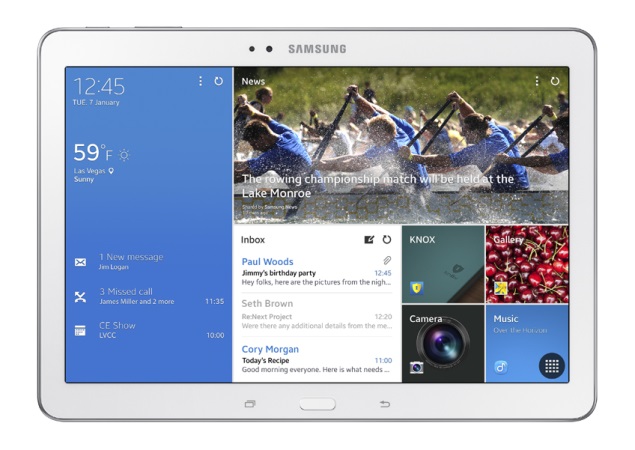
Google and Samsung have no doubt become two of the biggest tech giants in the world, and recently signed a pact to keep their relationship intact.
Samsung with the unveiling of the Galaxy NotePRO and Galaxy TabPRO tablet series at CES 2014 introduced its new Magazine UX, which can be called a tile-based UI that seems to be a blend of the Flipboard news-reading magazine app, and Microsoft's Metro UI. Now, Re/code in a report has claimed that the Mountain View giant is putting pressure on partners to influence the course of Android's future.
The report cites sources familiar with the matter and claims that the South Korean manufacturer is considering abandoning or modifying the current Magazine UX UI in upcoming devices. Further the report reveals that Samsung in future Android devices will feature Google's apps for movies, music and other related content in-place of home-grown apps like ChatON and WatchON among others. The report also speculates that Google in return might have agreed to work with Samsung for a future Nexus device in concession.
While Google and Samsung have not provided many details of the recent cross-licencing deal, Samsung in a statement on Wednesday said, "To continue our momentum of delivering great user experiences and bringing greater value to people's lives, Samsung will continue to identify and provide differentiated and innovative service and content offerings on our mobile devices."
A recent poll by market research and analysis firm IDC revealed that Samsung extended its lead as the world's biggest vendor and accounted for 31.3 percent of total sales. According to the report, the South Korean giant saw growth of 42.9 percent, allowing it to extend its dominance in the global market.
Earlier this week, Samsung signed an agreement with Google Inc. to cross-license their patents, reducing the risk of costly legal disputes over intellectual property and likely fostering greater collaboration between the two tech giants.
The new cross-licensing agreement between Google and Samsung means there will be a higher possibility for the South Korean major to participate in search giant's key projects as a hardware partner.

Post a Comment